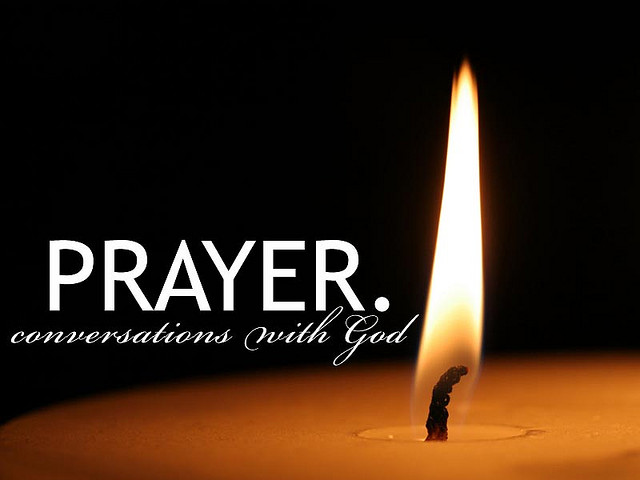All materials in these studies that are not otherwise attributed are © 2014 by Tool Box for Faith. Expressed permission is hereby granted to download and print these materials for personal/congregational use only. If you wish to use any of these materials for any other groups or other purposes, please contact us (gennowdisciples@gmail.com) for permission. In all cases, include this copyright notice and email address with any versions of the material. Thank you.
Section 1: Opening Prayer
Grant, O God, that your holy and life-giving Spirit may move every human heart; that the barriers dividing us may crumble, suspicions disappear, and hatreds cease; and that, with our divisions healed, we might live in justice and peace; through your Son, Jesus Christ our Lord. Amen.
Section 2: Dichotomy of Lutheranism
One unique perspective of Lutheran theology is the emphasis on dichotomy. A dichotomy is a contrast between at least two things that, while different, are related to one another. Check out this video. What dichotomies do you see?
Easter Sermon Videos | What Easter Means from Churpedia.Com on Vimeo.
One dichotomy worth noting that when this video says we’re called to “end religion,” its not talking about closing all our denominations or stopping worship. Instead, we’re called not just to a set of beliefs or rituals or morals, things that people often associate with religion, but an entire new life shaped by the resurrection of Jesus. This includes things like certain beliefs and regular worship in our churches and an ethical outlook on life, but the resurrection of Jesus should not just shape our religion. It should shape the entirety of our lives.
You may have heard a pastor or leader say that Christians are simultaneously sinners and saints, which is a dichotomy, or that all of Scripture is made up of Law and Gospel (or Law & Grace), another dichotomy. What’s unique about this Lutheran approach is that we admit that these things exist at the same time, that we’re both sinners and saints, that scripture is both Law and Gospel. We’re a both/and kind of people. Our entire lives exist in the midst of these core dichotomies, and where there is a dichotomy, there is tension.
Section 3: Tension in Faith
Think of a tug-of-war. Two teams of people are pulling on the same rope in opposite directions. This is a dichotomy, two contrasting forces that are related to one another by the rope but yanked in opposite directions. In the midst of this experience is a tight rope, full of tension as it’s pulled in toward different goals. There are two realities trying to take that rope in one direction or the other, and the rope exists in the tension of the middle.
When Martin Luther said that Christians lived simultaneously as sinners and saints, he spoke of two truths that shape our lives. The first is that we’re sinful creatures. Whether it’s gossip behind the backs of people at school, or lying to people at home, or failing to treat our bodies in healthy ways, or any number of other faults, each of us make mistakes. At times, we fail to live the life God calls us to live and instead live the lies of sin. Yet, another truth shapes our lives, namely that God acts in the face of our sin and makes us saints. Romans 5:8 reminds us that, “God shows his love for us, because while we were still sinners Christ died for us,” and through that sacrifice, “we have been made righteous” (CEB). In other words, we didn’t earn God’s kindness by any kind of holy behavior. Instead, in love and compassion, God chose to love us despite our faults. Our behavior doesn’t make us saints; instead, God’s favor makes us saints despite our sinful behavior.
This is the tension in which we live. Like a tug of war, though, we’re called in that tension to push toward the saintly. God makes us into saints despite our sinfulness, but God doesn’t want us to remain mired in pain and suffering and division. In the midst of this tension, God wants to take our brokenness and reshape it into something beautiful. In love, God makes us righteous with a purpose: God is working to free us from the bondage to sin so that, as saints, we might look, live, and love more like Jesus.
Article XI: On Law, Grace, and the Gospel from Together for the Gospel (T4G) on Vimeo.
We see that at work in the Bible, were we find that other dichotomy of Law and Gospel. Law is anything in Scripture that reveals to us our sin and that, because of that sin, we don’t deserve God’s goodness. Gospel is anything in Scripture that reveals to us that God loves us and invites us into abundant life, not because we deserve new life but because God wants to restore goodness to all creation, including you and me.
Notice how the dichotomy of Law and Gospel in Scripture point out the dichotomy of sinner and saint in our lives. The Law reminds us that we’re sinners. The Gospel reminds us that we’re saints. This tension in Scripture, God’s written Word, speaks to us about the tension that we experience in everyday life.
Perhaps most importantly, we must remember that this tension, this dichotomy, is not a bad thing, but a blessing. The tension is a sign that God is pulling on the rope, from the side of sin toward the saintly life God desires for all of us. The tension in Scripture reminds us that we’re not condemned to the Law’s consequences for our sin, but the love of God pulls us into a place of grace and transformation. Think of the tension as the good burn in your muscles during exercise, that’s pulling your body into a place of health and strength. The tension is a sign that there is growth in our life, that we are on a journey with God into God’s kingdom, and that God will continue to pull us along the way.
Section 4: Dynamics of Living in Tension
So, what does this mean? What does this mean for your life? For your faith?
The dichotomies of Lutheranism ought to offer us conviction and encouragement. One end of the dichotomy reminds us of both our limits and our sinfulness. The Law convicts us that, because of sin’s work in our lives, we cannot find God on our own. The other end of the dichotomy reminds us that our limits and sinfulness don’t define us. The Gospel reminds us that, despite our struggle to find God, God finds us. In Baptism, God chooses us. In communion, God serves us. In the Holy Spirit, God gives us new life constantly. God won’t leave us to the results of sin, so instead, in grace, God pulls us into sainthood.

In the comment section below, please share at least one area that you’ve experienced this tension, this dichotomy. Maybe it’s in your relationship with your family, where you’ve found love despite making mistakes. Maybe it’s in an area like tithing, where you’ve found growth faithfulness because of God’s work in your life. Where do you know that you’re a sinner and a saint? Or, perhaps it is a place in Scripture or in one of your pastor’s sermons. Where do you see the tension of Law and Gospel at work? And, like any workout, this dichotomous tension will, at times, be painful. Where have you experienced this struggle?
Fortunately for us, as God’s people, this isn’t just like any game of tug-of-war. In the end, God always wins. This dichotomy of Lutheran theology is only temporary. It’s an experience of the world as it is now, but it will not always be this way. The tension exists because the Kingdom of God is here at work, making the world new. But that Kingdom is not fully here yet. God’s work is incomplete. One day, when we find the fullness of God in eternity, this tension will give way to the other side, where we will all be saints in the light of Christ, where the Gospel will be the only word spoken forever. This tension is a reminder that God is at work, so we too ought to work, as saints, for the Gospel, toward God’s Kingdom. How could this tension inspire you to bring grace to the world as one of God’s saints?
As you live in this tension, remember the resource of prayer. As you feel the tug of sin in your life, ask God to be at work once again to deliver you from the temptation to sin. Confess the sins that plague you, and remember that in Christ, your sins are forgiven! As you feel the tug toward saintliness in your life, remember that this is the work of God’s grace and not your own doing. Give thanks to God for transforming you, and ask God to use that as a blessing for the world.
As you live in the world, as a sinner and a saint, as one condemned by the Law and freed by the Gospel, remember that this is a tension that everyone faces. Use this knowledge to look with compassion on others as they struggle, to celebrate with others as they succeed, and to recognize that, though we are imperfect people, we are perfectly loved by God.
This song is one of my favorite worship tunes for a number of reasons, but especially because it speaks to this tension, that we’ve failed and yet are caught in God’s grace, that God is working to reshape us from the inside out. Since we’re all in that place, living the dichotomy as sinners made saints by the grace of God, I hope it speaks to you as well.
Section 5: Closing Prayer
Loving God, in holy baptism you have gathered us together across all human divisions and reconciled us to yourself in one body through the cross. Strengthen us now by your presence, that our thoughts and actions may be rooted and grounded in your love for us; through Jesus Christ, our Savior and Lord. Amen.
Opening and Closing Prayers from Sundays and Seasons.com. Copyright 2015 Augsburg Fortress. All rights reserved. Reprinted by permission under Augsburg Fortress Liturgies Annual License #25165.


